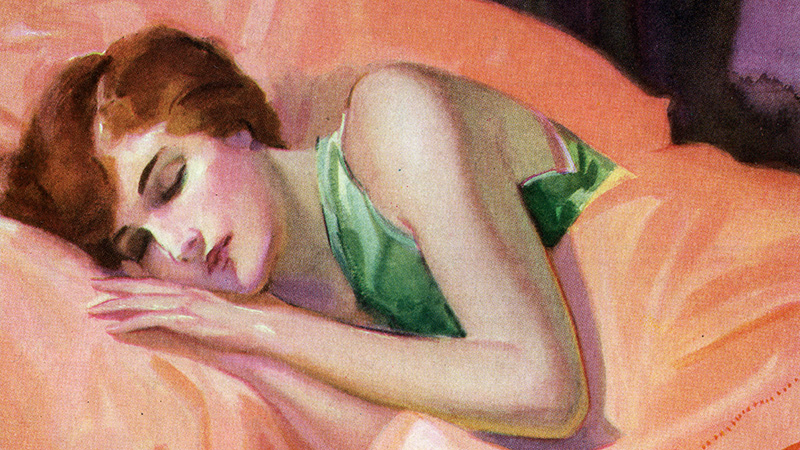The study also found that moving from feeling extremely alert to extremely sleepy was associated with feeling 10 years older in both studies.
According to the study authors, sleep is crucial for both physical well-being and mental health. The brain undergoes a series of processes while someone sleeps, but how “young” it can make a person feel has rarely been addressed.
Just two nights of interrupted sleep is enough to make a person feel years older than they really are, according to researchers at the Stockholm-based Karolinska Institute. In their study, published this week in the journal Proceedings of the Royal Society B, they found that if people want to feel young they should take a look at their sleeping habits.
“Many people feel younger than their calendar age. While this phenomenon is less prevalent among younger individuals, as we reach our thirties and beyond, the discrepancy between how old we are and how old we feel becomes more pronounced,” the researchers write.
“Subjective age, often referred to as how old we feel, is a concept that goes beyond mere perception. It turns out that feeling younger than our actual age is associated with living longer, better mental and physical health, and more positive psychological traits (e.g. optimism, hope, resilience), prompting suggestions to include subjective age as a biophysical marker of aging as part of health examinations,” they add.
The first study the researchers ran looked at 429 participants with 66% being women, and with the age range being between 18 and 70. In this first study, they showed that for each additional day of insufficient sleep in the last 30 days, the subjective age increased by 0.23 years (about 3 months). So for each day of poor sleep, the persons in this study felt, on average, roughly 3 months older.
In the second study, researchers looked at 186 participants with 55% being female and the age ranges being between 18 and 46. They asked the volunteers how old they felt after two nights of full sleep (9 hours) compared to two nights in which they slept only 4 hours. The participants said that two nights of sleep restriction (4 hours) made them feel 4.44 years older compared to when they were getting 9 hours of sleep.
The study also found that moving from feeling extremely alert to extremely sleepy was associated with feeling 10 years older in both studies.
The participants also responded differently to sleep loss depending on whether or not they were an evening type person or a morning person. Those who usually stay up later felt older than their actual age even after plenty of sleep, but morning types felt much older than the evening types when their sleep was interrupted.
“Sleep has a major impact on how old you feel and it’s not only your long-term sleep patterns,” said Dr. Leonie Balter, a psychoneuroimmunologist at the Karolinska Institute in Stockholm and first author on the study. “Even when you only sleep less for two nights, that has a real impact on how you feel.”
Balter added that interrupted sleep could also cause harm to a person’s health in other ways including: unhealthy eating, a reduction in physical exercise, and a disinterest in socializing and a disinterest in engaging in new experiences.
“It’s important to realize how malleable a subjective age is,” she said. “If we can make people feel younger, they may be able to have the associated benefits, such as being more willing to take on new experiences and being socially active and physically active.”
“If you want to feel young, the most important thing is to protect your sleep,” Balter said.


